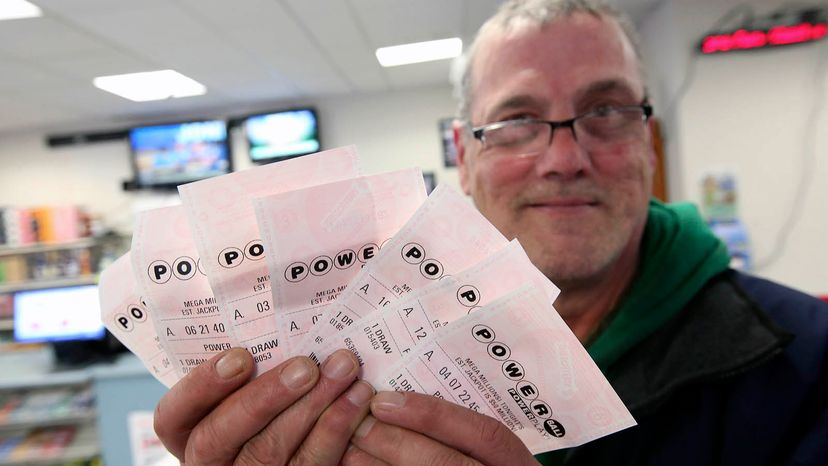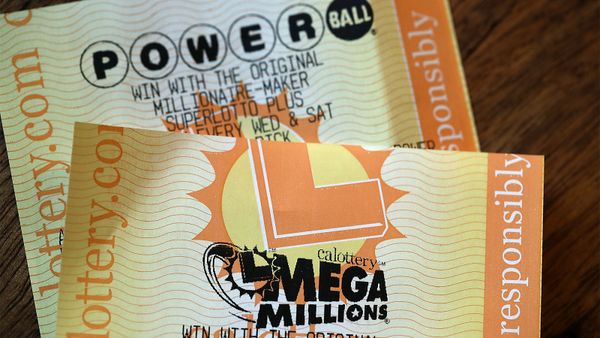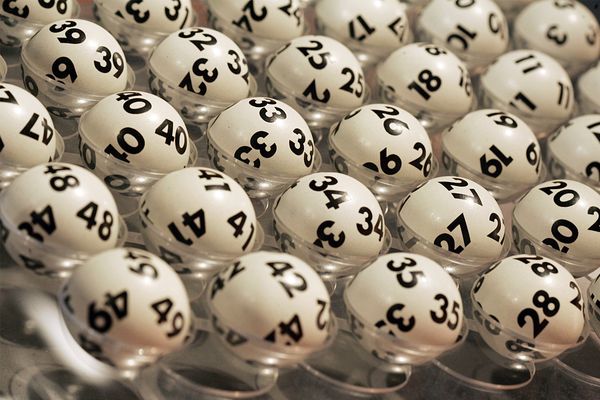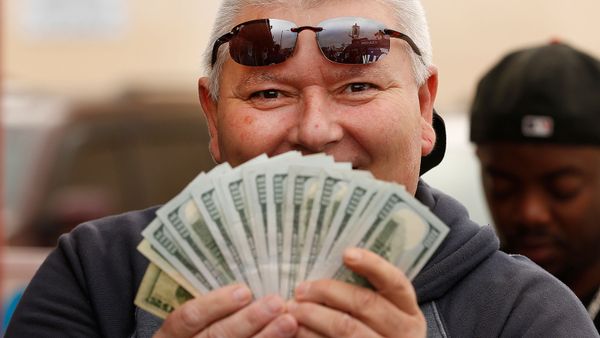
Stop reading this article and drive directly to the nearest gas station. The Powerball lottery jackpot has hit $800 million — the second-largest in its history. Even if you know for a fact that the odds of winning Powerball (one in 292,201,338) are far worse than being eaten by a shark or being elected president, buying a $2 ticket seems like a small price to pay for the chance to be stupid rich.
And you're not alone. According to calculations by the statistics nerds at FiveThirtyEight, the number of people who play lotteries like Powerball or Mega Millions increases exponentially with the cash value of the jackpot. The bigger the payoff, in other words, the more suckers (er, people) play.
Advertisement
Here's how it works. Let's focus on Powerball, for the sake of keeping it simple. Every time someone wins the Powerball, the jackpot resets to $40 million. According to data from LottoReport.com, only die-hard Powerball players buy tickets when the jackpot is below $100 million. Above that milestone, ticket sales begin to rise quickly. But the real "tipping point," says the FiveThirtyEight folks, occurs around $250 million, when "regular Joe" office workers start pooling cash and sales blow up to more than 200 million tickets per drawing.
These numbers sounded about right to Gary Miller when we talked to him in 2019. Miller is the spokesman for the Pennsylvania Lottery, one of 45 state lotteries (plus D.C., Puerto Rico and the U.S. Virgin Islands) that participate in Powerball.
"There is definitely a 'sweet spot' for jackpot size when it comes to motivating players," Miller said. "It used to be in the $200 million range, but now players seem to really engage when a jackpot reaches $300 million or above."
The lottery is big business. In 2017, Americans spent $71.8 billion on lottery games, or $220 per American. (The numbers were compiled using stats from the Bureau of Labor Statistics 2019 Consumer Expenditure Survey on lottery spending, the most recent available.) But don't think for a minute that the Multi-State Lottery Association (MUSL), which operates Powerball, doesn't want us to spend even more.
On Oct. 7, 2015, the MUSL announced some changes to its Powerball "gaming matrix" that substantially decreased the odds of winning the Powerball grand prize from one in 175,223,510 to one in 292,201,338. The harder it is to win, the more the jackpot grows. And the more the jackpot grows, the more people buy tickets.
Miller of the Pennsylvania Lottery confirmed that the October 2015 odds change was made because "we do know that Powerball players are increasingly motivated by larger jackpots."
And let's not forget another compelling reason why more lottery tickets are sold when there's a big fat jackpot — articles like this! Every time the Powerball or Mega Millions reaches a big round number like $700 million or $800 million, the press pounces on the story.
So here's the $800 million question: Will you buy a Powerball ticket for this weekend's drawing? Sure, the odds of winning the jackpot are roughly the same as pulling your name out of a hat filled with the names of every man, woman and child in America. But if you don't buy a ticket, your odds are infinitely worse.
Advertisement


